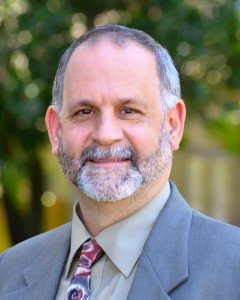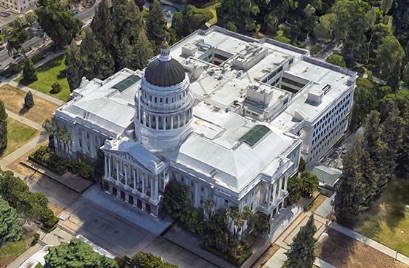Calendar Note:
The last day to introduce new bills in the 2020 session was Friday, February 21. bills will now be scheduled for policy committees.
Key Committees and Committee Hearings
- Assembly Utilities and Energy Committee – Oversight Hearing: “Electricity Prices Matter” 1:30pm, Wednesday, February 19, Room 437 (see recording).
- Senate Energy and Utilities Committee (no hearings scheduled at this time)
- Assembly Select Committee on California’s Clean Energy Economy
Assembly Bills
AB 56 (Garcia) OPPOSE – This holdover bill from 2019 would empower the CPUC to order energy procurement based on real or perceived shortcomings in the Integrated Resource Plans submitted by Investor Owned Utilities, Direct Access providers, and CCAs. The bill will allow the CPUC to require procurement on any perceived deficiency that may be 10 to 12 years out in the future. This makes no sense, given that so much lead time would allow a CCA to address any potential problem. Read the Center’s July 2019 Letter of Opposition.
STATUS: In the Senate Committee process. No activity since 2019.
AB 235 (Mayes) – This 2019 holdover bill would allow PG&E to issue bonds to cover 2017, 2018 wildfire liabilities that ratepayers could ultimately have to pay for, and allows the CPUC to arbitrarily set a limit on the amount a transmission & distribution utility must pay as a result of catastrophic wildfire that may have been the result of their infrastructure. It is essentially a defense of status quo corporate utility dominance.
STATUS: In the Senate Committee process. No activity since 2019.
AB 345 (Muratsuchi) SUPPORT – This bill will, if enacted, establish regulations to protect public health and safety near oil and gas extraction facilities, including a minimum setback distance between oil and gas activities and sensitive receptors such as schools, childcare facilities, playgrounds, residences, hospitals, and health clinics. See The Climate Center’s Letter of Support.
STATUS: In the Senate. Read first time. Sent to the Rules Committee for assignment to a policy committee.
AB 1839 (Bonta) – The “Green New Deal” bill. Introduced on January 6, this bill would create the California Green New Deal Council with a specified membership appointed by the Governor. The bill would require the California Green New Deal Council to submit a specified report to the Legislature no later than January 1, 2022. So far the plan is scant on specifics including how goals will be met or how much the State will pay to meet those goals.
STATUS: Introduced in January 6. No committee assignment yet. The bill has not been scheduled for a hearing. The Climate Center is still assessing the bill and has not yet taken a position.
AB 1847 (Levine) – This bill would authorize the CPUC (contingent on the Commission finding that an electrical corporation is not complying with State law, rules, or regulations) to appoint a public administrator to the electrical corporation for a period not to exceed 180 days. The bill would vest the public administrator with oversight authority over the electrical corporation’s activities that impact public safety. See the bill author’s factsheet.
STATUS: On January 17, referred to the Assembly Utilities & Energy Committee.
AB 2954 (Rivas) California Global Warming Solutions Act of 2006: climate goal: natural and working lands – This bill would require the [State Air Resources Board], in collaboration with the California Environmental Protection Agency, the Natural Resources Agency, the Office of Planning and Research, and other relevant departments, to identify by July 1, 2021, an overall climate goal for the state’s natural and working lands, as defined, to sequester carbon and reduce atmospheric greenhouse gas emissions. As part of this process, the bill would require the state board, in collaboration with the same agencies and departments, to among other things, identify practices, policy incentives, and potential reductions in barriers that would help achieve the climate goal for integration into the next update to the scoping plan that immediately follows the identification of the climate goal and, on or before January 1, 2022, report to the Legislature recommended policy incentives that the state could enact to help reach the climate goal.
Senate Bills
SB 45 (Allen, et al): Dubbed the “Wildfire Prevention, Safe Drinking Water, Drought Preparation, and Flood Protection Bond Act of 2020.” This is a proposed $5.51 billion general obligation bond intended to fund projects related to in part to wildfire prevention. The bill includes a provision for grants to local agencies, state agencies, special districts, joint powers authorities, tribes, and vulnerable populations to incentivize installation of microgrids, distributed generation and storage systems, or in-home backup power systems, powered by clean energy systems that provide continuity of electrical service in response to, or anticipation of, disruption due to public safety power shutoffs, wildfire, or other disaster.
STATUS: Passed out of Senate, in the Assembly committee process.
SB 350 (Hertzberg) OPPOSE – This bill would “authorize the CPUC to consider a multiyear centralized resource adequacy mechanism,” meaning, a central buyer, which would encroach on CCA statutory authority on procurement autonomy. This bill is a tandem bill with AB 56.
STATUS: In the Assembly committee process. No activity since 2019.
SB 378 (Wiener): Would establish ratepayer protections related to Public Safety Power Shutoff incidents.
STATUS: Voted out of Sen. Approps Committee on Jan. 23. Heard on Assembly floor January 27, but being held pending committee referral.
SB 386 (Caballero) – Read our Letter of Opposition. This bill would have allowed counting of large hydro assets (dams) toward Renewable Portfolio Standard (RPS) obligations. This would have significantly impacted progress with new renewables.
STATUS: Failed to pass out of house of origin by 1/31 and is now dead. This bill will be removed from future updates.
SB 702 (Hill) – This bill would amend section 399.13 of the Public Utilities Code to authorize a retail seller of electricity to rely on contracts of 10 years or more in duration or ownership agreements entered into directly by its end-use customer for eligible renewable energy resources located on the customer side of the meter to satisfy the portion of the 65% requirement attributable to the retail sales of that end-use customer.
STATUS: Out of the Senate as of January 23. Now in Assembly. Read first time. Held pending committee referral.
SB-772 (Bradford) – OPPOSE – This bill would have required CAISO to procure 2,000MW of long-duration energy storage from specific projects by 2022.
STATUS: Failed to pass out of house of origin by 1/31 and is now dead. This bill will be removed from future updates.
SB 774 (Stern) – SB 774 would require IOUs to collaborate with the State’s Office of Emergency of Services and others to identify where back-up electricity sources may provide increased electrical distribution grid resiliency and would allow the IOUs to file applications with the CPUC to invest in, and deploy, microgrids to increase resiliency. Concerns focus on too much control being placed in the hands of the IOUs over microgrid development when other LSEs and stakeholders can and should play a role.
STATUS: In the Assembly committee process with no committee assignment and no hearing date.
SB-801 (Glazer, McGuire) – Electrical corporations: wildfire mitigation plans: de-energization: public safety protocol. This bill would require an electrical corporation to deploy backup electrical resources or provide financial assistance for backup electrical resources to a customer receiving a medical baseline allowance if the customer meets those conditions.
STATUS: In the Senate Energy Committee with no hearing date scheduled.
SB 917 (Wiener) – This bill renames the California Consumer Energy and Conservation Financing Authority and via eminent domain takes control of PG&E to create the Northern California Energy Utility District and a public benefit corporation, Northern California Energy Utility Services, to carry out day to day operations. The key provision of the bill that is relevant to Community Choice Energy is: “10623: The authority of a community choice aggregator to provide electric service within the service territory of the district shall remain as if the district were an electrical corporation.”
STATUS: On February 12, triple-referred to Senate Energy, Govt & Finance, and Judiciary Committees.
SB 1215 (Stern) – SB 1215, the “California Emergency Services Act” establishes the Office of Emergency Services in the office of the Governor and provides that the office is responsible for the state’s emergency and disaster response services for natural, technological, or manmade disasters and emergencies. Under existing law, the California Public Utilities Commission (CPUC) has regulatory authority over investor owned utilities (IOUs). Existing law requires the CPUC, in consultation with the California Energy Commission and the California Independent System Operator, to take specified actions by December 1, 2020, to facilitate the commercialization of microgrids for distribution customers of large electrical corporations, including developing microgrid service standards necessary to meet state and local permitting requirements and developing methods to reduce barriers for microgrid deployment without shifting costs between ratepayers. This bill would establish the Local Government Deenergization Event Resiliency Program, to be administered by the Office of Emergency Services, to support state and local government efforts to enhance public safety, protect vulnerable populations and individuals, and improve resiliency in response to deenergization events. The bill would also establish the Local Government Deenergization Event Resiliency Fund and would continuously appropriate the moneys in the fund for expenditure for purposes of the bill. The bill would require the office to offer planning grants and technical assistance to local governments to assist in identifying microgrid projects within their jurisdictions and would require an identified microgrid project to satisfy specified requirements. The bill would require the CPUC, in consultation with the Office of Emergency Services, to collect and make publicly accessible a statewide database of critical facilities and critical infrastructure, and related critical circuits, and identify with respect to each whether it serves a high fire-threat district or vulnerable transmission area. The bill would require an electrical corporation to file an application with the commission for approval of any distribution system improvements that are necessary to allow a microgrid project to operate while disconnected from the distribution system, or to allow a critical circuit to disconnect from the distribution system. This bill would impose a state-mandated local program.
STATUS: Introduced Thursday, February 20, awaiting policy committee assignment.
SB 1240 (Skinner) – This bill would require the California Energy Commission, in consultation with the California Independent System Operator, to identify and evaluate options for transforming the electrical corporations’ (Investor Owned Utilities’) distribution grids into more open access platforms that would allow local governments and other third parties to participate more easily in grid activities, as provided. The bill would require the commission to update the identification and evaluation at least once every two years. The bill would require the commission, beginning January 1, 2022, and biennially thereafter, to submit to the Legislature a report on the identification and evaluation of options.
SB 1314 (Dodd) – SB 1314, the Community Energy Resilience Act of 2020, would require the Strategic Growth Council to develop and implement a grant program for local governments to develop community energy resilience plans. The bill would set forth guiding principles for plan development, including equitable access to reliable energy, as provided, and integration with other existing local planning documents. The bill would require a plan to, among other things, ensure a reliable electricity supply is maintained at critical facilities and identify areas most likely to experience a loss of electrical service. The bill would require the council to establish a stakeholder review board to provide statewide oversight for purposes of the grant program. The bill would require a local government, as a condition of receiving grant funding, to submit its plan and a report of project expenditures to the stakeholder review board within six months of completing the plan. The bill would require the stakeholder review board to annually report specified information about the grant program to the Legislature.
STATUS: Newly introduced and awaiting committee assignment.


